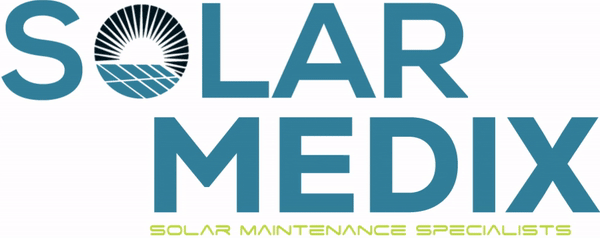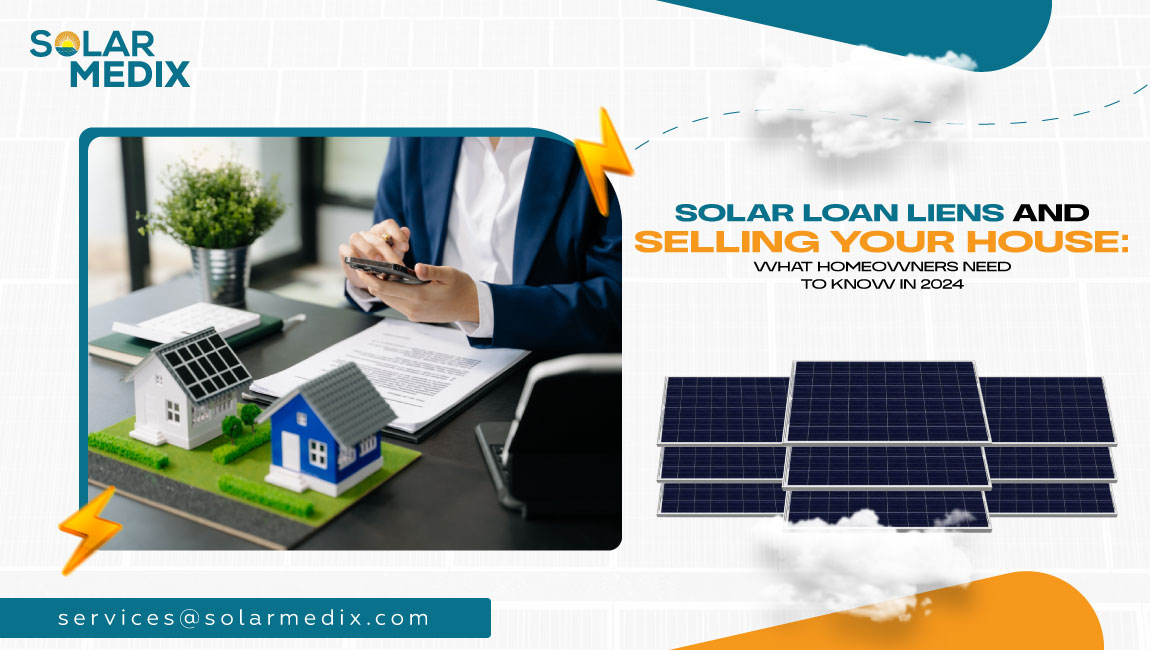More and more homeowners are leaning toward utilizing solar energy for its benefits, such as reducing electricity costs, being environmentally friendly, and even adding to home value.
With the increase in solar panel installations going almost rapidly, many homeowners have started to ask questions such as, What will happen when I am engaged in selling or refinancing my house while I am still paying for the solar panels? Has it placed a lien on my home?
At Solar Medix, we know that decisions about solar energy investments may not be easy, at least when it comes to homeownership. Now, let us focus on solar loans and liens and their impact on your capacity to sell your house.
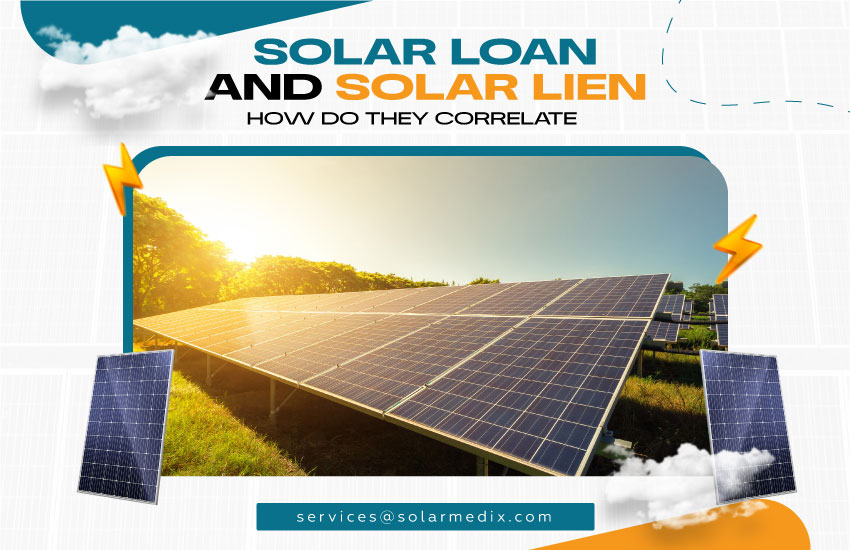
Solar Loan and Solar Lien—How Do They Correlate?
Even though a solar loan and a solar lien are essentially the same, every homeowner has to keep in mind the slight difference they hold, especially when they are considering refinancing their loans or intending to sell their homes in the future.
What Is a Solar Loan?
This is a loan that helps a borrower purchase solar panels. It is a financial loan with a fixed interest rate, with repayment spread over a certain period, like a mortgage credit.
Solar loans mean one actually has ownership of your panels, in contrast to a solar lease or a solar PPA. This means that you are able to fully benefit from the electricity savings, tax credits, and increased value in your property that solar panels typically bring to their owners.
- Loan Term: The term of the Loan is 5 to 20 years
- Ownership: In loans, you own the panels and the tools that are installed outright.
- Tax Benefits: Through solar loans, homeowners can benefit from federal and state solar tax credits.
- Upfront Costs: There may be some upfront fees, but they are flexible, given that many loans require little to no initial installments.
- Interest: Solar loans bear interest, which may not be as high as other types of financing.
- Fact: Solar energy is still growing fast, and the Loan for residential solar is predicted to hit $6.2 billion in 2026, as reported by the U.S. Department of Energy.
What is a Solar Lien?
A solar lien is when a debtor secures his house to the lender as he has not paid for a solar loan. It acts like an asset for the lender just in case the borrower cannot repay the Loan.
In other words, a lien empowers the lender with legal rights over the property in cases where the borrower fails to refund the amount borrowed, as they have mutually discussed and agreed before.
- Secured Loan: Any solar loan that is characterized by a lien is considered a secured solar loan since the lender has an item they can repossess.
- Lien Removal: The lien remains in the asset for as long as the borrower has not repaid the loan to the lender.
- Impact on Property: A lien can hinder the property sale or a refinancing of the property until the lien has been paid in full.
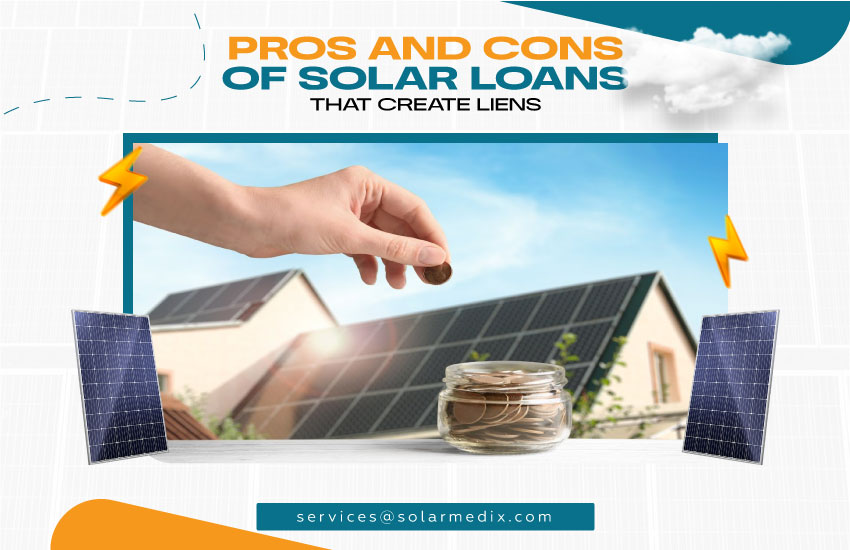
Pros and Cons of Solar Loans That Create Liens
A solar loan might be the best means of financing a solar panel system; however, there are advantages and disadvantages that people would want to know before opting for this type of Loan.
Advantages of Solar Loans
- Ownership: When you take out a solar loan, you fully own your solar system and can enjoy cheap energy.
- Increased Home Value: A solar panel system installation can increase the value of your home, and this may even be more than the cost of the solar panel system.
- Federal and State Incentives: Solar loans allow you to avail tax credits and other forms of incentive, and this adds to your benefit of saving more money.
- Lower Monthly Bills: When the Loan is fully repaid, you can get free electricity, which means saving in the long run.
- Fact: Recent data reveals that 20% of homes with solar energy systems across the United States finance themselves through loans that use liens. This can, however, make it difficult for you to sell your home. If you’re selling, either pay off the loan amount or pass the debt to the new buyer (MOSAIC)
Disadvantages of Solar Loans
- Upfront Costs: Although one has no upfront cost, some solar loans have initial payments on an installment fee or down payment, which can be discouraging to most homeowners.
- Interest Payments: Compared to cash payments, you will have to pay interest on the amount borrowed, which is an additional cost of creating the system.
- Lien Risks: Nonpayment can lead to a lien on the property, and its further sale or refinancing becomes even more difficult.
- Loan Term: Similar to most loan arrangements, the borrower could take up to 10 years or more to repay the Loan. It greatly influenced their chances of reselling the property without repaying the complete Loan.
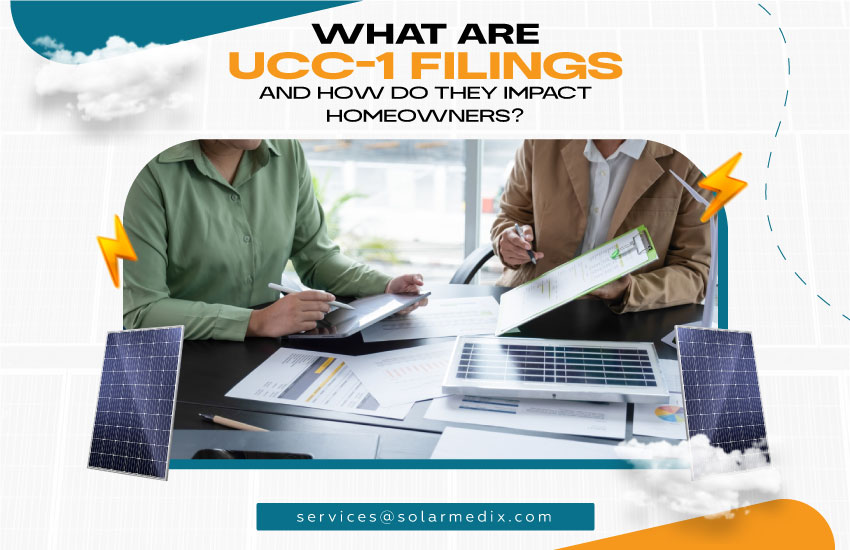
What Are UCC-1 Filings and How Do They Impact Homeowners?
Lenders who provide solar loans typically file a UCC-1 financing statement that is essentially a notice to the public that the lender has a security interest in the solar system. However, the objective of the UCC-1 filing is somewhat equivalent to a lien since it establishes the secured party’s interest in the specific property in case of a default by the debtor.
- Public Notice: The UCC-1 filing serves as a notice to the public of the lender’s security interest in the system.
- Security Interest: It enables the lender to have a legal right to the particular property if the borrower fails to honor the agreement.
- Impacts on Sale: Filing a UCC-1 might complicate selling the home if the Loan is not paid in its entirety before the sale.
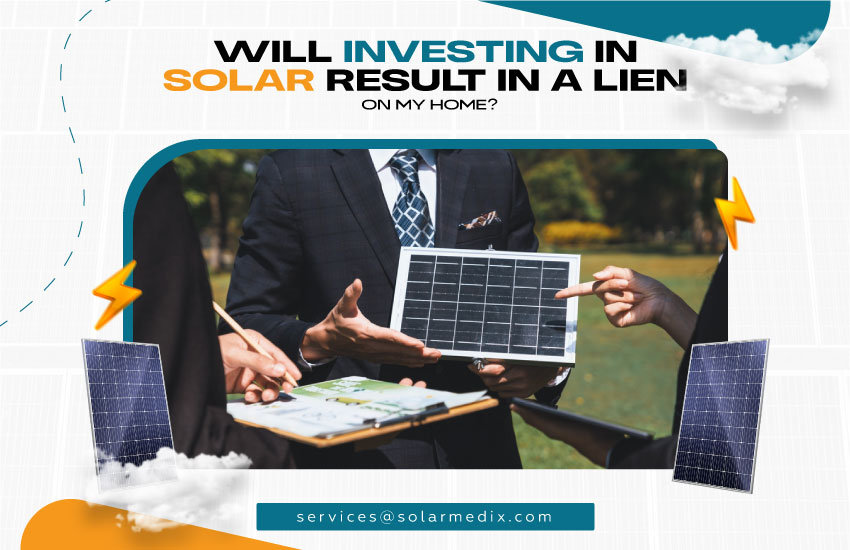
Will Investing in Solar Result in a Lien on My Home?
Not all solar loans involve a lien, but most do. If your solar Loan is not fully paid, the money lenders will put a lien on your property to recover the amount borrowed. It is crucial to understand all the terms under which the money was borrowed and ensure that the owner of the home is either out of the Loan or clearing the balance before selling the property.
- Solar Loans and Liens: If you get a loan to pay for the installation, the loan can also come with a lien if it is not paid back.
- Lease or PPA: If you lease the solar panels or enter into a PPA, there is no lien on your property, but the door is open for various issues that may arise at the sale of the property.
- Loan Terms: The particular characteristics of your loan contracts will determine whether there is a lien on your home and when you are eligible to get its removal.
Do you want to know how solar leases, loans, and PPAs vary? Knowledge of these choices aids in enabling homeowners to select the most appropriate one that will suit their houses and their pockets. Read more to find out which one is better: Difference Between a Solar Lease, Solar Loan, and PPA.
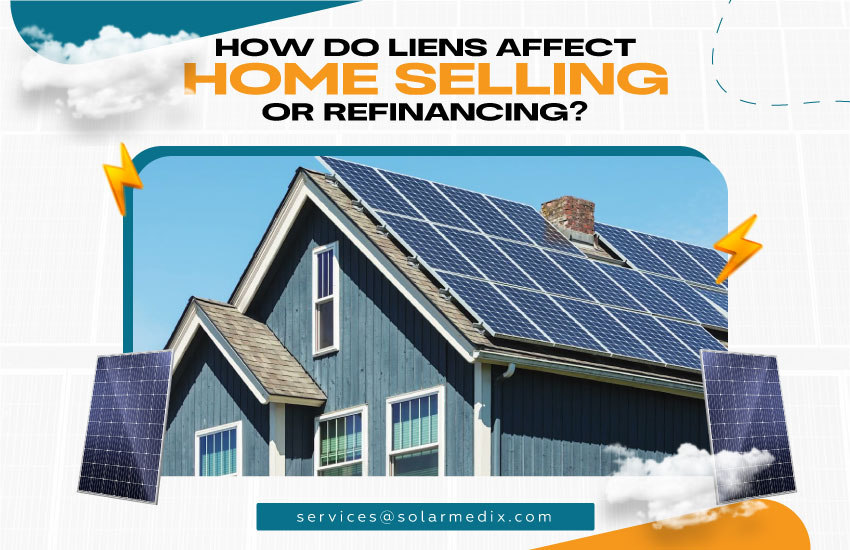
How Do Liens Affect Home Selling or Refinancing?
Selling or refinancing the home when there is a solar loan lien differs from when there is no lien at all.
Here are some of the challenges you may face:
1. Selling a Home with a Solar Loan
- Payoff Before Sale: The lien must be settled fully before a sale is made, or the buyer must be willing to take on the balance of the loan.
- Buyer Concerns: Some buyers will not desire to spend on a property that has a solar lien because they do not expect to be responsible for the Loan.
- Appraisal Challenges: A lien could affect the appraised value of your home, leading to a sale at a price different from the expected cost.
- Closing Delays: If this lien is not paid beforehand, it may negatively affect the closing process.
2. Refinancing with a Solar Loan Lien
- Additional Debt: The liens on a solar loan, if you choose to refinance your home, could work to add to your new mortgage debts.
- Loan Transfer: Some decide to transfer it to the buyer, but this is not always the easy case to expect.
- Limited Options: Refinancing options could be quite limited if the loan balance is high and you are still not done with the balance.
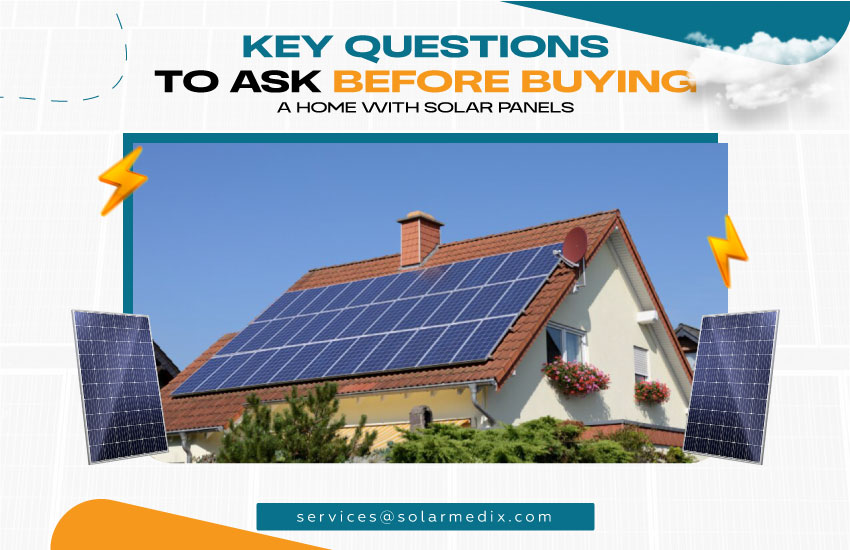
4 Key Questions to Ask Before Buying a Home with Solar Panels
Do you want to purchase a home with solar panels already installed? Before proceeding, you need to address four crucial questions.
1. Buying a House with Solar Panels Already Installed
- Ownership: Who really owns the solar system – the company simply sells it or even leases it?
- Loan Status: Are there still any unpaid loans or liens on the solar system?
- Maintenance: Has the system been maintained frequently, and has it been working optimally?
2. Are the Solar Panels Owned or Leased?
- Leased Systems: If the system is to be leased out, you must assume responsibility for the lease or make arrangements with the seller to terminate it.
- Owned Systems: If the system is owned, you have full ownership rights and can use it without making lease payments.
3. How Was the System Financed?
- Loan: If the system was financed, determine whether a lien holder or UCC-1 is active on the property.
- PPA: If it is under a power purchase agreement (PPA), one must know the terms and the process for taking over the agreement.
4. Is Net Metering Possible?
- Net Metering: Check on the possibilities of net metering and whether they will be transferred to you once you purchase the home. This could impact ways of saving on costs such as energy bills.
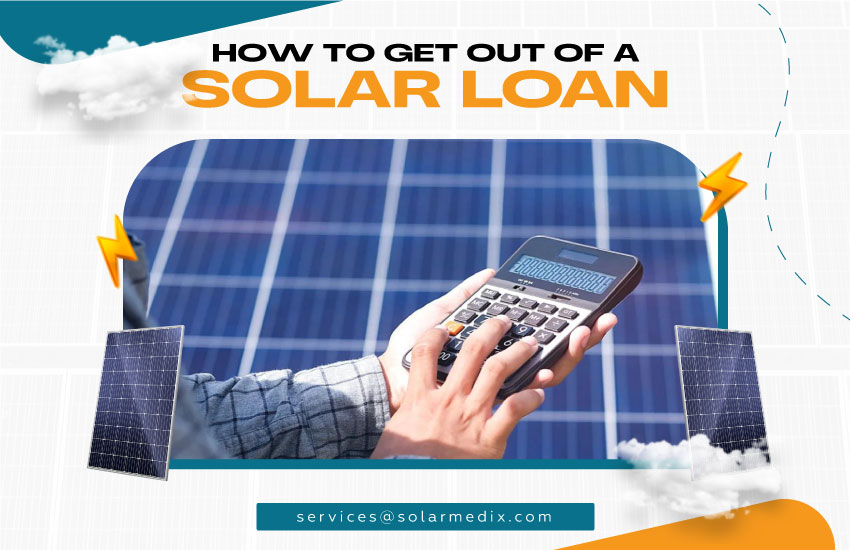
How to Get Out of a Solar Loan
Would you like to exit your solar Loan early? You may think it is complicated, but depending on your lender and financial history, you have a few choices.
Here are some simple ways of doing that.
- Refinance the Loan—If the interest rates of solar loans have reduced, one should consider opting for refinancing so that one can pay a smaller amount on a monthly basis or pay off the Loan in less time. It can be useful if you want to split your payments and make them more budget-friendly.
- Pay Off the Loan Early—Another practical strategy is to repay the cost of the solar Loan before the agreed period elapses. Be sure that there are no prepayment penalties because they will offset whatever gain you are able to achieve with early payment.
- Transfer the Loan to a New Buyer—If you wish to sell your home, you can sell it together with the solar Loan. This is especially helpful for homeowners who have already fixed their solar power panels. But how easy is it to transfer? It depends on the loan terms and, specifically, whether the buyer is willing to take it over.
Thinking about what would be better for you? Must consult with a financial advisor, lender or experts at Solar Medix, to discuss the implications before entering into such an agreement. Each route has its advantages and drawbacks, so get ready to have all the information you need!
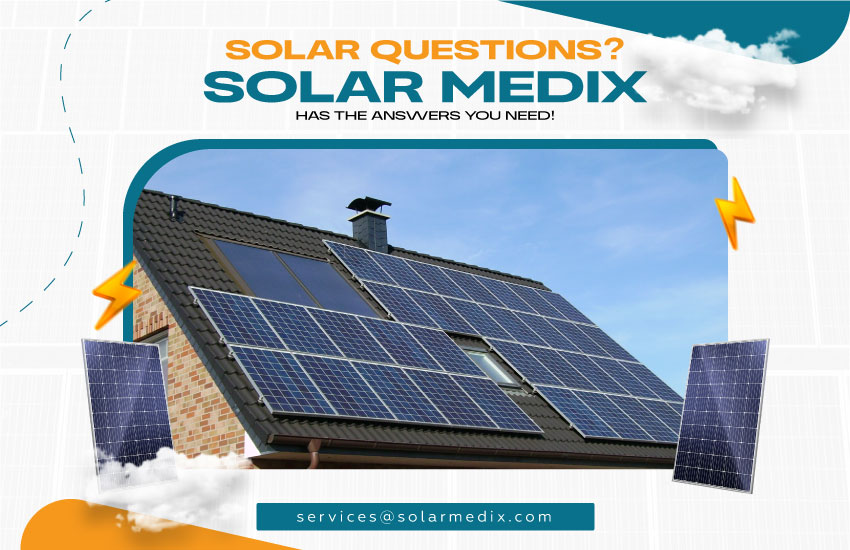
Solar Questions? Solar Medix Has the Answers You Need!
Do you have more questions about solar loans and liens? Solar Medix is here to offer you professional answers that suit your inquiry. We have worked in the solar maintenance and service industry for more than 17 years, and this makes us the most suitable company to assist investors throughout the process.
Whether you need help in installing solar panels, choosing a financing scheme, or learning the pitfalls of home-selling or refinancing with solar panels, Solar Medix is always ready to guide you in the right decision.
At Solar Medix, we have a team of certified solar experts whose primary goal is to ensure that you receive only certified and up-to-date information about solar energy and the opportunities and risks of solar system ownership.
FAQs
If you wish to know whether your solar Loan creates a lien on your property, it is recommended that you read out your loan contract. You could also ask the lender about the lien and the UCC-1 filings. For instance, at Solar Medix, we recommend that customers go through the loan documents before signing them so that they do not encounter any surprises later.
The fact is that it is challenging to sell a home where there is a solar loan. The solar loan lien issue must be clarified at or prior to the sale. This may involve paying off the loan in full, taking over the loan by the buyer, or changing the order of the sale so as to clear the loan, which may delay the sale.
For failure to repay the solar loan, the lender gains the right and authority to seize the property. This can lead to legal action and sometimes even eviction from the house. If you have any concerns regarding payments, try to discuss them with the lenders.
